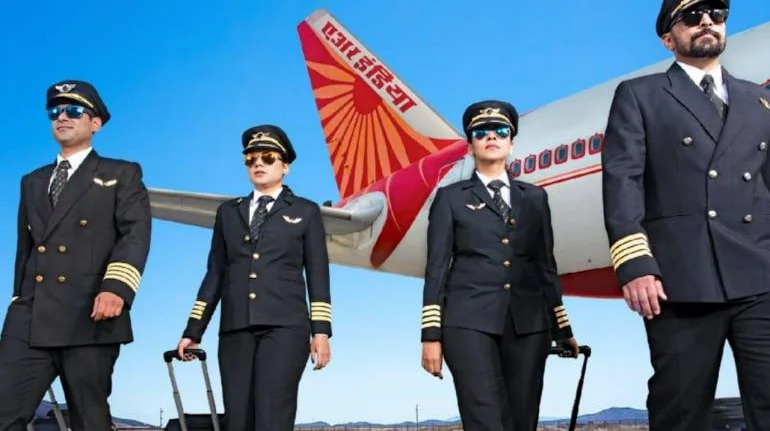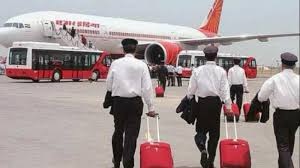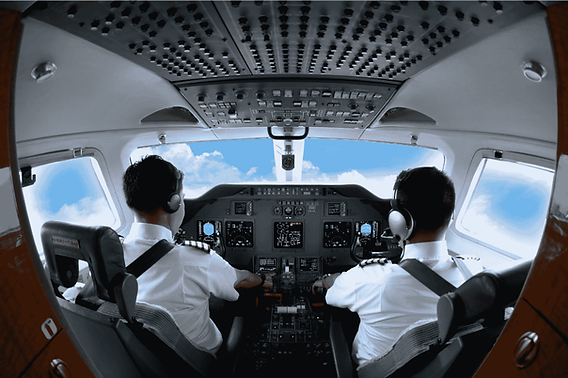New Delhi, the DGCA has communicated to the Delhi High Court that airlines will begin to
adopt the updated duty and rest hour guidelines for pilots in a staggered manner starting July
1.
The Directorate General of Civil Aviation also conveyed to Justice Tara Vitasta Ganju that the
remaining updated regulations would take effect from November 1.
Among other considerations, airlines will guarantee that no more than 168 hours elapse
between the conclusion of one weekly rest period and the commencement of the next as per
the revamped guidelines.
The updated civil aviation requirements from the regulatory body aim to enhance rest periods
for pilots in light of growing concerns regarding pilot fatigue. Initially, the implementation was
scheduled for June 1, 2024.
The DGCA presented an affidavit to the court regarding the phased rollout following
discussions among representatives from airlines, pilot associations, and the civil aviation
ministry.

Additional Solicitor General Aishwarya Bhati, representing the DGCA, noted that significant
progress had been made in advancing the rollout of the CAR.
The authorities have opted to put most of the regulations into effect by July 1, 2025, while a
smaller portion will be introduced by November 1, 2025, she stated.
This issue is set to be revisited on February 24.
The court was addressing petitions submitted by the Indian Commercial Pilots Association,
Indian Pilots Guild, and the Federation of Indian Pilots concerning the DGCA’s updated flight
duty time limitations.
The representatives for the pilots’ associations previously indicated that, in principle, CAR 2024
was acceptable, contingent upon certain stipulations. They asserted that if implemented, most of the concerns would be resolved.
Several major adjustments were made to the current guidelines to address pilot fatigue.
The affidavit indicated that the weekly rest periods would be extended from the existing 36
hours to 48 hours.
“An operator must ensure that a minimum of 48 continuous hours of weekly rest, including two
local nights, is provided, ensuring that no more than 168 hours elapse between the conclusion
of one weekly rest period and the beginning of the next,” it stated.
The affidavit further elaborated, “The operator shall grant weekly rest at the home base or
temporary home base. Note 2: The 168 hours will be calculated from the end of the previous
weekly rest period.”
According to CAR, the maximum flight time and maximum flight duty period for nighttime
operations will be limited to eight hours and ten hours, respectively.
The number of nighttime landings will be restricted to two, down from the current six.
The high court had instructed the DGCA to convene a meeting with the associations, airlines,
and the ministry.

Phased Approach and Night Duty Norms
The DGCA’s incremental strategy for enacting the updated norms aims to guarantee sufficient
rest for pilots, thereby reducing the likelihood of unfortunate events while preserving airlines’
operational consistency. The initial phase, commencing on July 1, 2025, will introduce 15 of the 22 suggested provisions, including the prolonged rest interval. The remaining seven provisions concerning night duty will be implemented starting November 1, 2025.
According to the new regulations, duty periods occurring between midnight and 6 am will be
designated as night duty, extending from the former standard of midnight to 5 am. This
broadened night timeframe, however, has faced significant backlash from airlines such as
Indigo and SpiceJet, who caution that it could result in major operational challenges.
The airlines’ opposition to the new regulations arises from their worries regarding the potential
effects on their operations and expenses. They contend that the new rules would necessitate
the cancellation of 20% of flights during the height of the summer travel season.
Airlines’ Concerns and DGCA’s Response
The Federation of Indian Airlines, a representative industry organization, has criticized the new
regulations, arguing that the six-month implementation timeline is insufficient. They maintain that the increased rest requirements would compel airlines to recruit an additional 10–20% more pilots, or else face flight cancellations.
The DGCA’s updated plan also incorporates provisions for pilots flying on ultra-long-haul
routes. These pilots will be assured a minimum of 120 hours free from duties. In cases of unforeseen delays, flight time may be extended by a maximum of one hour, and the flight duty period could be prolonged by up to two hours.
The DGCA’s initiative for the gradual implementation of the new FDTL norms marks a crucial advancement in tackling the issue of pilot fatigue, which has become an escalating concern
within the aviation sector. The unpredictable duty schedules and the increase in international
flights have led to a significant rise in night flying without sufficient rest, resulting in stress and
sleep deprivation for pilots.
The DGCA’s strategy to enforce the revised norms has been developed after taking into
account feedback from stakeholders, expert committee insights, and both national and
international discussions. The regulator has requested the court to view the updated plan as
the definitive roadmap for executing Civil Aviation Requirements Section 7 Part III under the
Aircraft Act of 1934. The high court is set to review the matter again on February 24.
For all aviation-related guidance (DGCA ground classes, pilot training, cabin crew training)
Contact us https://contrail.in/
phone numbers +91 78457 69399


